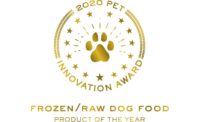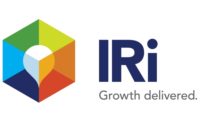Growth Essentials
by Barbara Young
Editor-In-Chief
Editor-In-Chief
Food safety is IA-based West Liberty Foods’ fundamental business tool — so far its corporate performance momentum is in overdrive.
Less than a decade ago, 47 turkey farmers in central Iowa accepted responsibility for their own survival when the reason for producing their big bird flocks disappeared. They learned a bitter lesson, to be sure, but a destiny defined by business prowess came from that experience.
The monument to their pain and struggle is reflected in the producer-owned business they call West Liberty Foods (WLF), including three processing facilities capable of annually converting 4.5-million pounds of raw material from heavy toms raised exclusively by farm members and employing more than 1,500 people — triple the 1996 number when WLF opened for business.
“We have some excellent business people in our farmer group,” notes Paul Hill, chairman of the Iowa Turkey Growers Cooperative (ITGC) and the man who initially organized the 47 members. “My job was to recognize that raw talent and how we could use it [in the new business venture]. Using the best of everyone, we ended up with a very dynamic organization.”
Although the group of farmers initially aimed to create a reliable market outlet for their tom turkeys, they ended up with much more — especially an expanded level of marketplace savvy. The new business became their bridge to understanding the inner workings of product manufacture and distribution operations. Hill, who annually raises 1 million turkeys on his farm, now splits his time between his farm business and WLF headquarters in West Liberty, IA.
“It’s rewarding to see how this company survived and thrived,” Hill says. “We [turkey farmers] risked everything we had to start the company. Today we’re a leader with the most advanced food-safety facility in the industry. But we [growers] are the satellite stations, the mother ship is our plants.”
Therein lies the clue to strategies behind the cooperative’s ability to grow its young business to generate $200 million in annual sales up from $60 million four years ago.
“We’ve driven our business on food safety and by building the right facility,” affirms Ed Garrett, president and chief operating officer with 28 years of poultry business experience. “Food safety is our platform for growth because we recognize the need to raise the bar on food safety. That means bringing something to the industry that is truly unique to our customers, and not merely a me-too system.”
To that end, WLF — capitalizing on its ability to manufacture product in a near sterile environment — is putting the finishing touches on its processing and distribution program in Mount Pleasant, IA, including a 55,000-square-foot sliced meat facility (see “Branding food safety”), a 25,000-square-foot addition to the plant now under construction, and a distribution and re-distribution facility capable of handling 165-million pounds of product annually.
“We are convinced we have built a facility capable of eliminating any risks our customers may face,” Garrett says. “We’ll take all the risks because we know we not only have a unique plant, each room in it is also unique. We put time and resources behind our business to give ourselves a fair shot at meeting the true needs of our customers.”
The Mount Pleasant facility operates under the leadership of Mike Whitman, a 16-year industry veteran whose first position was as a stuffer operator for the former Louis Rich organization. His experience includes stints in every key area of turkey and sliced-meat processing.
“I know the process from formulation through further processing,” he confirms. “We’re making food, and that’s a noble profession. I enjoy seeing our products in the grocery stores.”
Anatomy of Co-Manufacturing
Conceived on the basis that co-manufacturing of further-processed meats offers tremendous business opportunities, WLF not only operates in a continuous-improvement zone but also seems destined to join the ranks of enterprising American firms that turned adversity into progression.
The catalyst for change in the central Iowan town came in 1996, when the Philip Morris Companies initiated plans to either sell or close its Oscar Mayer plant – which had been the economic glue and foundation of Muscatine County and its town of West Liberty dating back to 1943 under Louis Rich Sr., the facility’s first owner. The tradition of providing jobs and other contributions to the community continued under Oscar Mayer, whose officials offered help during its move to another state and the transition of the plant’s ownership to ITGC.
As a primary co-manufacturer for nationally branded companies including MN-based Hormel Foods, WLF processes turkey, beef, pork, and chicken to meet proprietary specifications designed to satisfy retail, foodservice, or institutional food preparation requirements.
The company is positioning itself as a sought-after co-manufacturing partner, Garrett confirms. “We no longer knock on a buyer’s door,” he says. “Food safety is our brand. We don’t send a salesman, we send a specialist with a strong technical foundation.”
As meat and poultry processing companies outgrew their ability to meet production goals beginning in the mid-‘90s, a trend emerged bringing opportunity to WLF and others choosing to service companies seeking to maintain and grow production levels without investing in new capital improvement projects.
“We do slicing very well,” Garrett says. “If customers don’t want to slice their product, we’ll do it for them. Their biggest concern is giving up control. That’s where our food-safety pledge comes in. We will do whatever it takes to change the way we do business [to benefit customers].”
Growth Mode
“The growers want profitable growth, that’s our focus,” stresses Hill.
WLF corporate administrators — led by the co-partnership of Garrett and Glenn Elzey, senior vice president and chief financial officer — know that growth and operating efficiency are twin pieces of a successful business strategy. To that end, Elzey’s mission — since he joined the company last year in January — primarily deals with modernizing the company’s administrative and financial structures.
WLF corporate administrators — led by the co-partnership of Garrett and Glenn Elzey, senior vice president and chief financial officer — know that growth and operating efficiency are twin pieces of a successful business strategy. To that end, Elzey’s mission — since he joined the company last year in January — primarily deals with modernizing the company’s administrative and financial structures.
“We looked to him to take the company from cost accounting using real-time data collection, for one thing,” Garrett explains. “Now our supervisors work smarter because they can see daily results.”
Elzey reports that accomplishing his mission meant taking the old system apart and creating new procedures. “We challenged the status quo to provide new tools to operate the business,” he says. “We needed a system to meet the company’s pace and direction.”
Elzey developed a pricing structure to reflect true costs and expenses related to product sales. “We changed the way we cost product, which allowed us to tailor our business to meet our customers’ changing needs,” he reports.
Other changes on the company’s agenda for growth include a new research and development (R&D) facility near its flagship plant in West Liberty dedicated to first- and second-processing. The R&D center, currently under construction, also includes space to test both raw and cooked product.
“We are not just a poultry company any more,” Garrett concludes. “We are a meat slicing company that just happens to also slaughter.”





